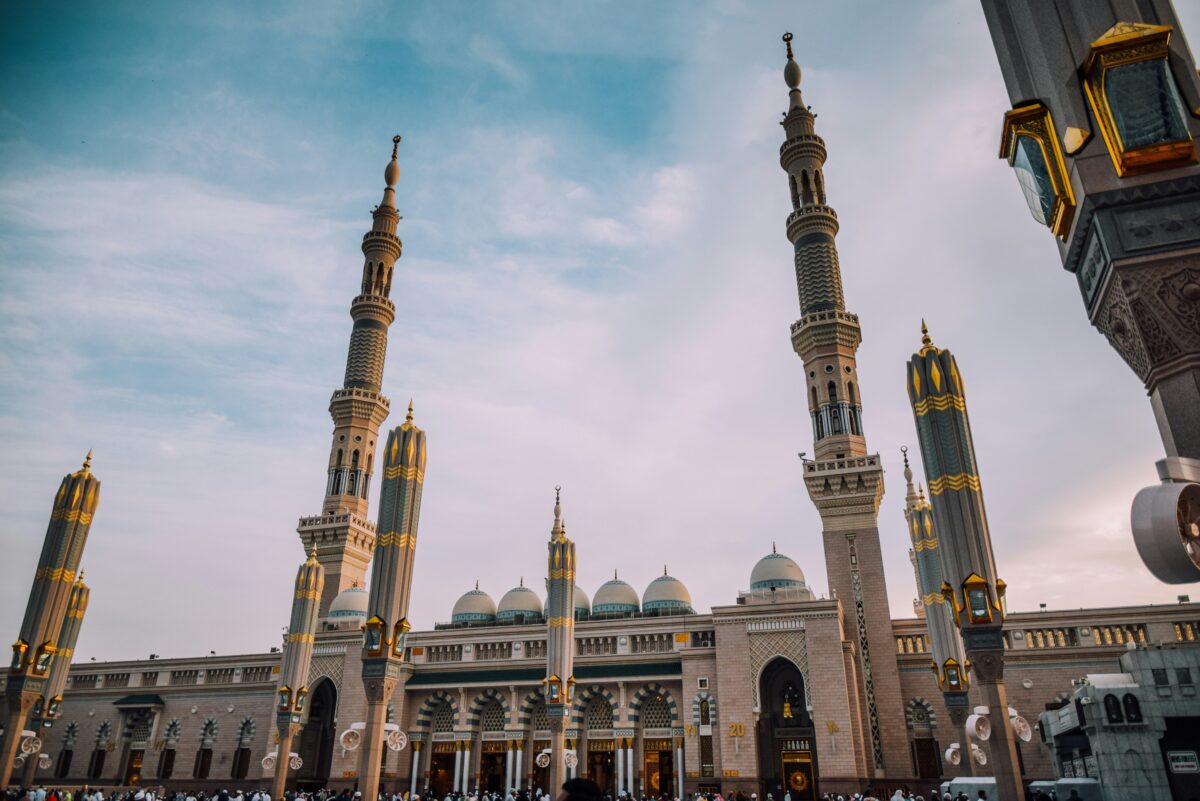For the last two centuries, fossil fuels have been the main source of energy production across the globe, especially in Saudi Arabia. As the second largest oil producer and sixth largest oil consumer, Saudi Arabia, along with many other countries, have played a major role in progressing both global warming and climate change. However, Saudi Arabia has acknowledged the harms of using fossil fuels and has formed a promising plan of action to divert away from fossil fuels and towards sustainable and renewable energy sources. Saudi’s ‘Vision 2030,’ first announced in 2016, is “a bold yet achievable blueprint for an ambitious nation,” says The Crown Prince and Chairman of The Council of Economic and Development Affairs, Mohammed Bin Salman. “It expresses our long-term goals and expectations and it is built upon our country’s unique strengths and capabilities.” The plan has many progressive goals for the future of the country, from gender equality and eradicating poverty, to climate action and affordable clean energy for all of its citizens; achieving these goals would be a huge accomplishment for the country and an even greater win for the planet.
The environmental goals of the plan include affordable and clean energy, sustainable cities and communities, responsible consumption and production, and climate action. Each goal is specifically designed to help combat global environmental issues and reduce Saudi Arabia’s role in progressing them. The country has realized the importance of these issues and the ways in which they intersect with the basic human rights and the quality of life of their citizens.
The first of the environmental goals is to make clean energy affordable and available to all the citizens who want it. As part of their initiative to become less economically dependent on oil, Saudi Arabia has implemented initiatives to diversify their energy sources to include renewable and alternative energy. Their main goal is to be able to generate 50% of energy from renewable energy sources by 2030. They plan on achieving this through projects such as The Wind Farm Project in Skaka, which is their first utility scale wind power source that will generate enough clean energy to power 40,000 households and offset 430,000 tonnes of CO2 a year. The Saudi Energy Efficiency Center (SEEC) develops and oversees national energy efficiency programs and identifies relevant indicators, objectives, plans and policies. Making great headway in achieving their goals, the SEEC has been in place for many years and the wind farms and solar energy systems have been built, alongside many other successful initiatives and projects. In terms of diversifying their energy sources, Saudi Arabia has been extremely successful in investing and building renewable energy options, and by 2030 the country should be able to heavily rely on clean energy alone.
In addition to clean and renewable energy, their second environmental goal is to create sustainable cities and communities within the kingdom. Saudi Arabia is known for many great things, such as its warm climate and beautiful beaches, yet good public transportation is not one of them. Almost everyone travels by car and every household owns multiple vehicles, which results in an extremely large carbon footprint. Therefore, Saudi Arabia is working on implementing better train and bus services by providing safe and easy navigation through its cities. They have already built trains that go from Jeddah to The Holy City of Madinah, Mecca, and King Abdulaziz Economic City, alongside a state of the art metro rail system in Riyadh, its capital. While public transportation has yet to become the main form of transportation, it has resulted in a 25% decrease in CO2 emissions from transportation within the kingdom between the years 2014-2019.
Saudi Arabia’s most ambitious goal of all is the NEOM project. This will be a city in Northern Saudi Arabia that will be completely car free and the perfect example of how people and the planet can live in complete harmony. It is a 170km line of land consisting of hyper-connected future communities, without cars and roads, and is built around nature. It is a direct response and solution to some of the most pressing challenges facing humanity today, such as legacy infrastructure, pollution, traffic, and human congestion. It will be home to a million people, preserve 95% of NEOM’s existing nature, and have zero carbon emissions. Construction for The Line in NEOM began this year and its first section should be completed by 2025 – if successful, NEOM will be a revolutionary sustainable city and community that will act as inspiration to countries all over the world.
Lastly, the final environmental goal in Saudi Arabia’s ‘Vision 2030’ is to ensure sustainable and responsible consumption and production of resources and effective action against climate change. In the last few decades, Saudi Arabia has witnessed significant growth in population and in their industrial and agricultural sectors. This has made it difficult to process waste. Waste management and recycling, as well as job creation and emissions reduction from landfills are some of the goals the country is hoping to attain by the year 2030. Landfills release a considerable amount of methane and carbon dioxide, two major greenhouse gases, into the atmosphere as bacteria breaks down the organic waste. In hopes to reduce waste in landfills, Saudi Arabia has created the Integrated Waste Management Initiative in the city of Jubail to increase public awareness about waste generation and promote waste separation to minimize dumping in landfills. This also includes an initiative to limit food waste, in cooperation with organizations such as The Itaam Charitable Society, by donating food to underprivileged people or by turning it into organic fertilizers.
By 2035, these initiatives will result in the recycling of 18% of the 15 million tons of annually produced municipal solid waste, 47% of the approximately 5 million tons of construction and demolition waste per year, and the removal and recycling of an estimated 20 million tons of construction and demolition waste that is currently lying in vacant plots and on roadsides around the capital. The Integrated Waste Management Initiative has already resulted in a decrease in both incineration of waste and the amount of waste in landfills, while increasing recycling of waste by 17% from 2010-2017. This year, 61% of all waste generated in Jubail Industrial City was recycled through their new resilient, efficient, and effective waste management and disposal system. In terms of climate action, The Crown Prince announced a new initiative in March 2021 called “The Saudi Green Initiative” that plans to plant 10 billion trees within the kingdom and another 40 billion across the region. While the exact plans of execution are still unclear, if successful, The Saudi Green Initiative would without a doubt be a revolutionary triumph in the battle against climate change.
Saudi Arabia’s ‘Vision 2030’ consists of many bold yet promising plans to further the Saudi economy and improve overall life quality in the kingdom. Their environmental goals of affordable clean energy, sustainable cities and communities, climate action, and reducing consumption and production are already being implemented through a plethora of initiatives, projects, and policies. Saudi Arabia is on track to significantly reduce its dependence on oil and its carbon footprint, while increasing its non-oil GDP and preserving the planet. They also aim to increase the participation of local and international companies in Saudi Arabia’s renewable energy projects. This will create more opportunities for Saudi citizens and increase the private sector’s contribution to GDP, as well as informing and raising awareness among the public of sustainable and eco-friendly practices. Since they announced the implementation of ‘Vision 2030,’ a lot of work has gone into making sure the goals they have set will be achieved. Considering the progress that has been made so far, Saudi Arabia is undoubtedly on track to meet the ambitious environmental goals they have set to secure a brighter, cleaner, and sustainable Saudi come 2030.
Sources:
DISCOVER NEOM. Neom.com. (2021). https://www.neom.com/index.html.
Oil Consumption by Country – Worldometer. Worldometers.info. (2021). https://www.worldometers.info/oil/oil-consumption-by-country/.
Saudi Arabia highlights the importance of the implementation of the UN Vision 2030. Arab News. (2021). https://www.arabnews.com/node/1389411/saudi-arabia.
Sustainable Development. Sustainabledevelopment.un.org. (2021). https://sustainabledevelopment.un.org/content/documents/20230SDGs_English_Report972018_FINAL.pdf.
Unified National Platform – Sustainable Development Goals. (2021). https://www.my.gov.sa/wps/portal/snp/content.
Vision Progress | Saudi Vision 2030. Vision2030.gov.sa. (2021). https://www.vision2030.gov.sa/en/vision-progress.

